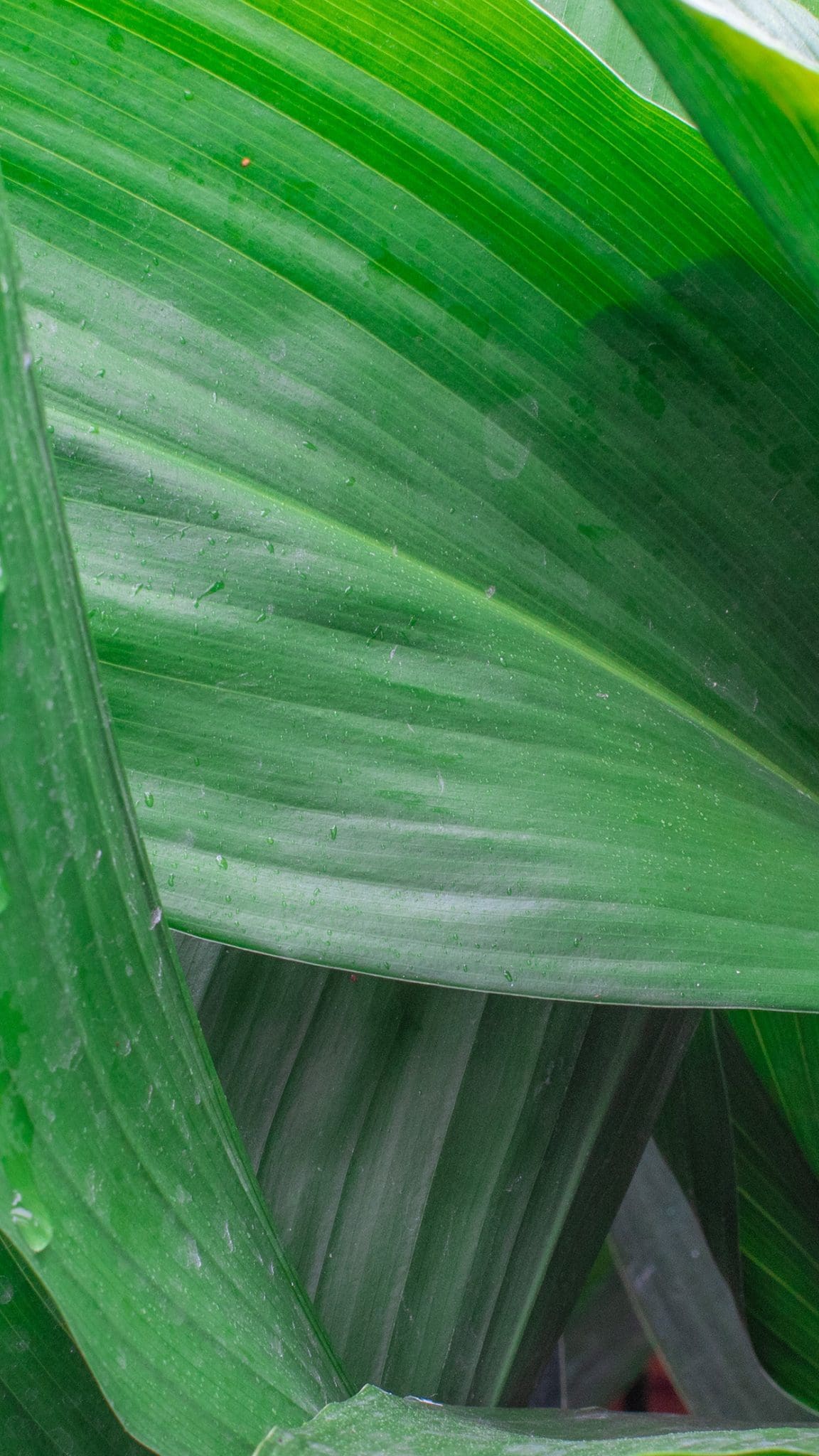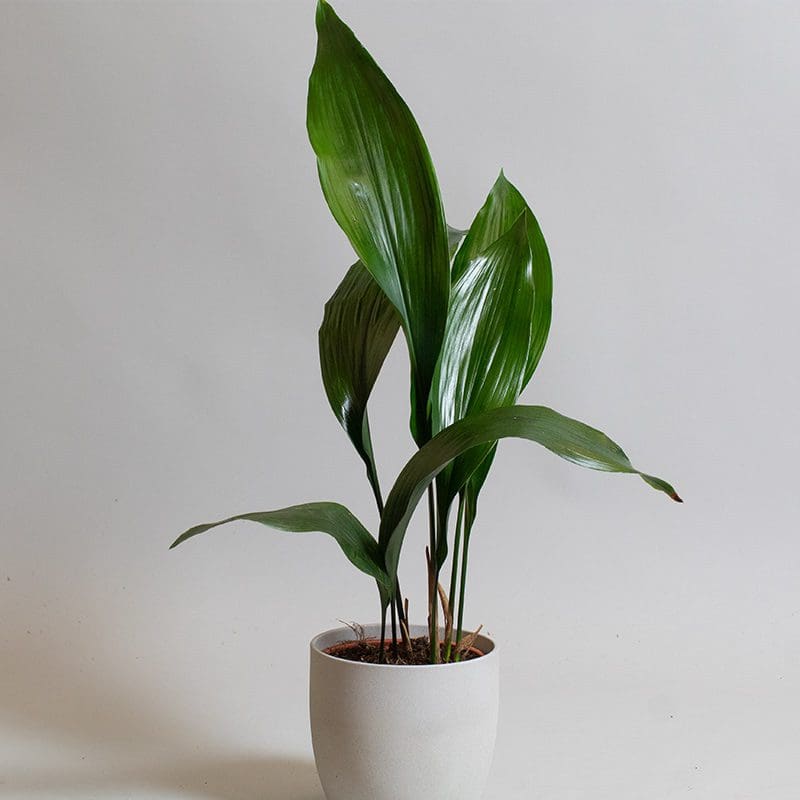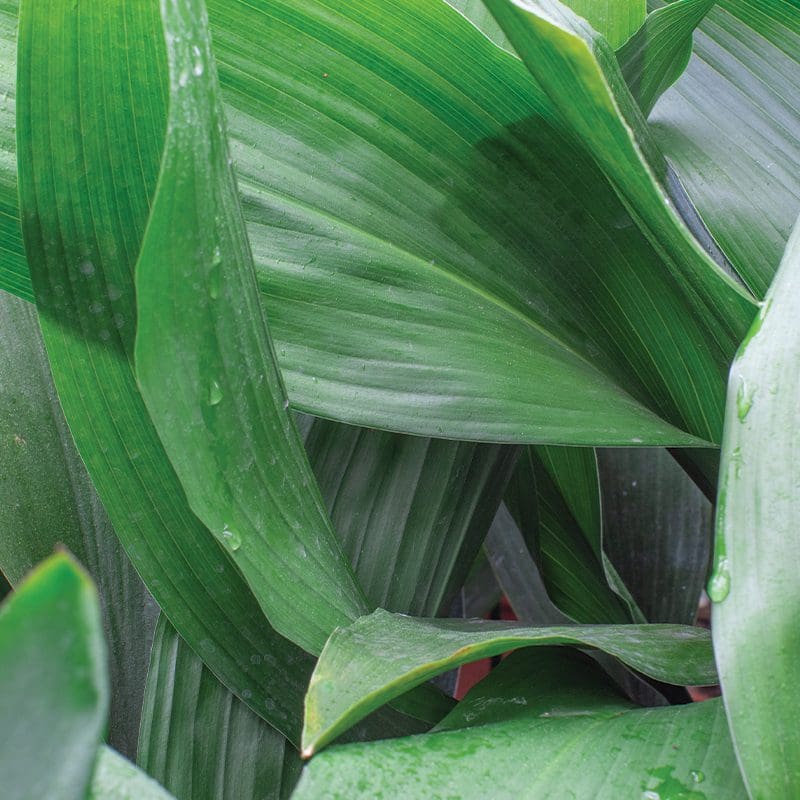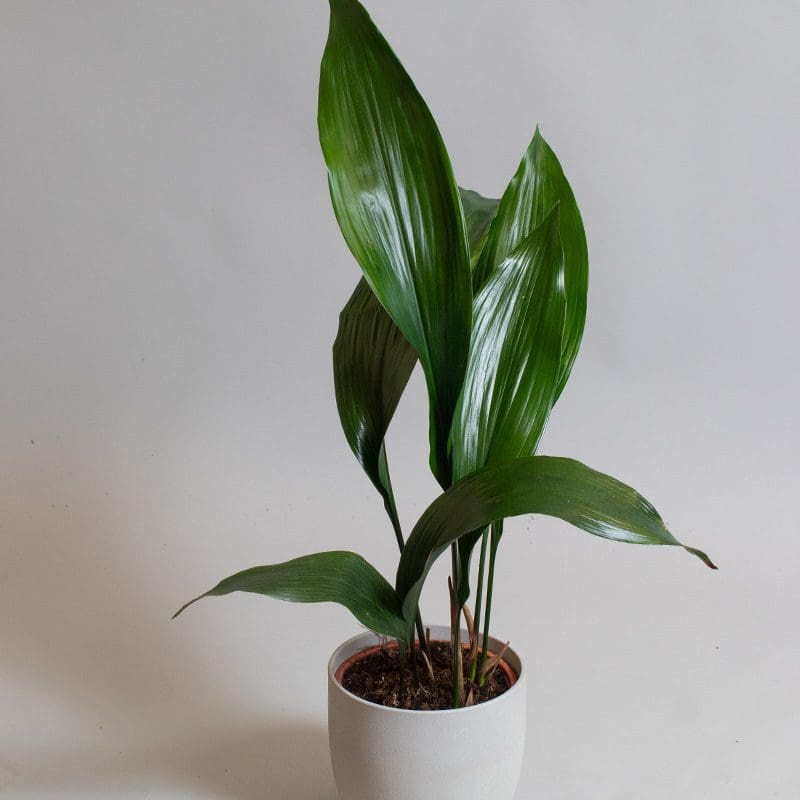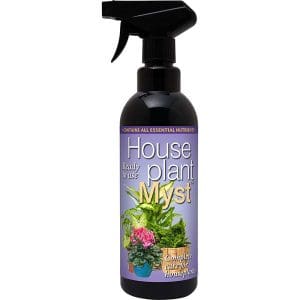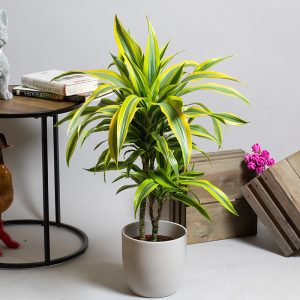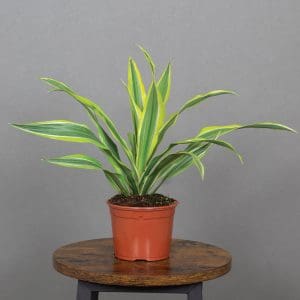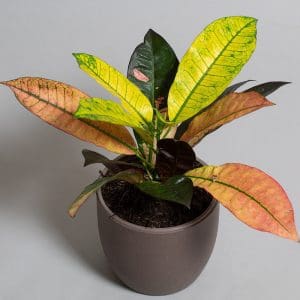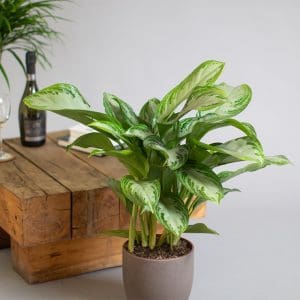No products in your basket yet
Aspidistra 15cm
£12.99
Out of stock
The cast iron plant was a popular houseplant during the Victorian era, and it is still a favored plant for offices and plant newbies. It is regarded as one of the toughest houseplants due to its capacity to survive in low-light and drought-prone environments.
Size
Position
Humidity
Watering
Temperature
Toxicity
Description
The Aspidistra or as it is commonly known the “Cast Iron Plant” is probably the easiest houseplant that money can buy as far as looking after it.
It thrives on neglect; you can place it in places where few other plants will live or tolerate. Full shade is perfectly acceptable for it to thrive. It positively dislikes full sunshine so avoid sunny windows. Bight diffuse light is probably the best place for it to grow quickly.
As a student studying Social and Economic history, I was fascinated to discover the plant listed as a good houseplant in Mrs Beeton’s book of good housekeeping published in 1861. There it is described as a Stove plant, meaning that it needed to be kept warm. In fact, this is not actually true, it can take temperatures as low at minus 5 and recover. I guess the bottom line here is that if the Victorians saw the plant as one that was easy to look after. I guess then that people living in the 21st century should have few issues.
It became so famous that the Aspidistra became central to George Orwell’s book “Keep the Aspidistra flying” as a symbol of middle-class respectability published in 1931.
The name Aspidistra literally needs to be broken in half. Aspid means shield and istra comes from its sister genus Tupistra. The plant was first discovered by the field botanist John Ker Gawler in 1822. They inhabit the East and Southeastern areas of Asia where many different species are located.
It is an idea plant for beginners, a good plant to practice upon. It nearly always rewards by just getting bigger and bigger. It enjoys being pot bound so do not be too quick to repot. If roots start to appear out of the bottom of the pot its time to move up a size. It is not uncommon for the rhizomes to distort the pot.
It is good practice to keep the compost moist at all times, reducing in the winter. Feed with a liquid feed every other watering during spring and summer to encourage new grow. Any general compost will be suitable.
The leaves tend to get dusty so wipe occasionally with a damp cloth gently rubbing the leaf. They will then shine for you. It is recognized by NASA as a plant that removes harmful substances from the air thus helping to keep the atmosphere within the house beneficial to its inhabitants.
Aspidistra are pet friendly.
Common issues with Aspidistra
Why are the leaves going brown on my cast iron plant?
Reason 1: (Watering) If the leaves on your cast iron plant are turning a crispy brown and drooping, it is probably thirsty, while dark brown and squishy leaves indicate overwatering. Even though these plants are rather drought-tolerant, you should water them when 50 to 75 percent of the compost is dry.
Reason 2: (Lighting) Low to indirect light is ideal for your cast iron plant. Reduced light levels may slow the plant’s growth, whilst excessive direct light will cause the leaves to turn brown. Remove any browning leaves and move the plant away from the window to protect it from sun damage.
Botanical Name
Common Name(s)
